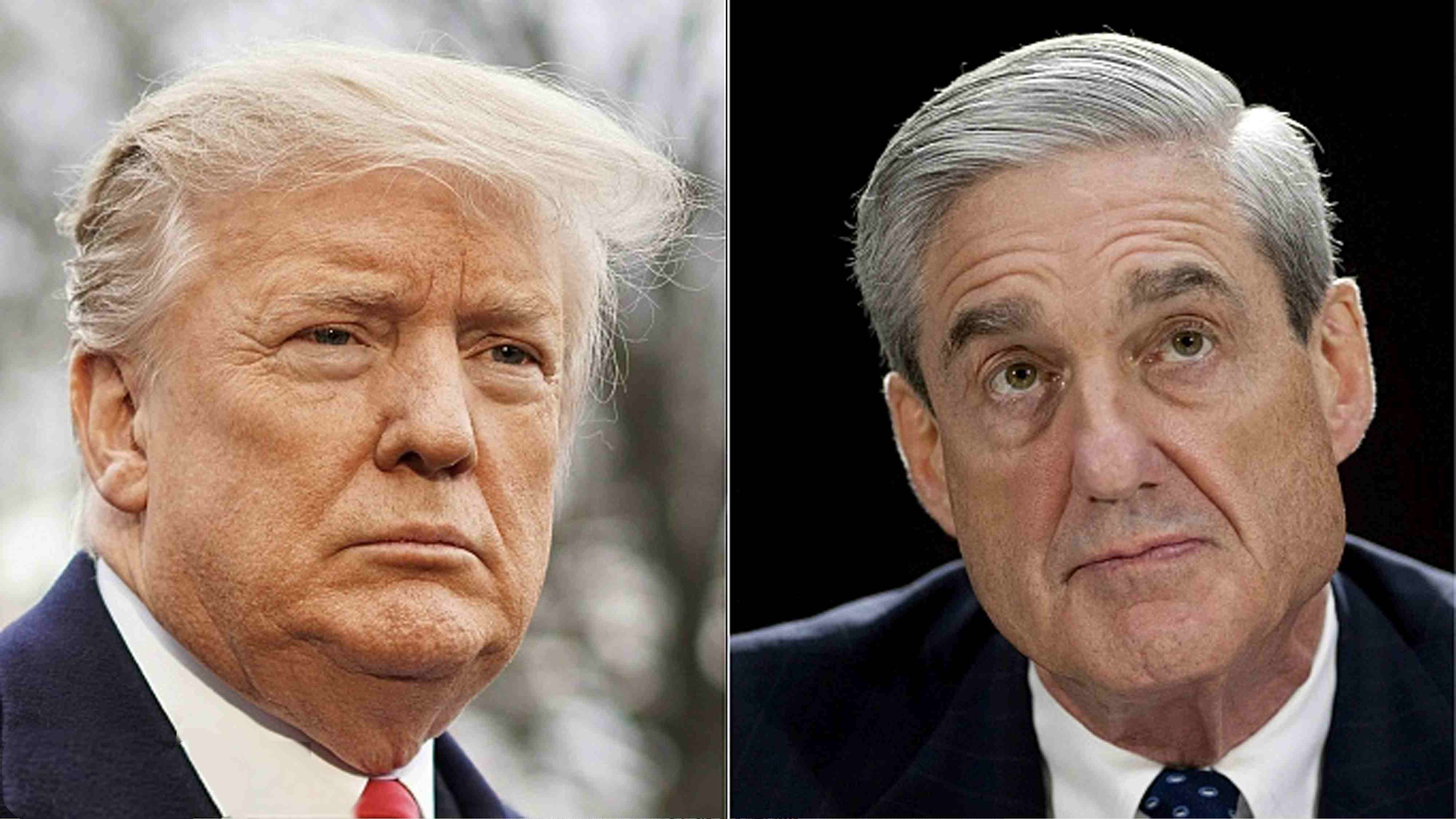
Opinion
14:20, 19-Apr-2019
Trump is bruised, but not decapitated by Mueller
Updated
15:27, 19-Apr-2019
Tom Fowdy

Editor's note: Tom Fowdy is a British political and international relations analyst and a graduate of Durham and Oxford universities. He writes on topics pertaining to China, the DPRK, Britain and the U.S. The article reflects the author's opinion, and not necessarily the views of CGTN.
Thursday evening in the United States marked the full release of the long-reported Mueller report that investigated accusations of collaboration between the Trump presidential election campaign and the Russian Federation in 2016.
The report was released to journalists following the prior release of its main findings, which did not recommend indictment of the president on any criminal charges, but did not on the other hand completely clear him of potential improper conduct.
The full details of the report contain elements which his critics will inevitably jump upon, including the revelation that Trump indirectly attempted to get Mueller fired himself, as well explicit quotations fearing the end of his presidency.
The outcome has inevitably created a polarized and divisive reaction along partisan lines.
Congressional Democrats are looking for an entry point to continue their attacks. In the aftermath, they have severely criticized Attorney General William Barr for placing alleged spin and Republican interests on its details in the runup to its release. On the other hand, the president has taken to Twitter and is forcefully doubling down on the “no collusion” narrative, backed by his key supporters.
The report's open conclusion ultimately affirms that the Mueller saga will continue to hang over the political scene of the United States up until the 2020 election. However, opponents of Trump need to think carefully about their next steps. The president is of course bruised by some of the report's unsavory findings; it paints him in a negative light pertaining to the rule of law in the United States.

U.S. Attorney General William Barr testifying before the Subcommittee on Commerce, Justice, Science, and Related Agencies, in Washington, April 9, 2019. /Xinhua Photo
U.S. Attorney General William Barr testifying before the Subcommittee on Commerce, Justice, Science, and Related Agencies, in Washington, April 9, 2019. /Xinhua Photo
However, it must be noted that it does not and will not decapitate him. In persisting in using the allegations of the report as the primary narrative of attack against the Trump presidency, Democrats are wasting political capital and should focus on other issues on which he deserves much greater scrutiny. As the president and his supporters fight back by utilizing an aggressive populist counter-narrative, it's not going to be as profitable as it appears.
The Mueller report was of course, necessary and fair; but its application was also deeply politicized. Any astute observer of American politics must understand that the manner in which it is conducted is always done in a very dramatic and hysterical way. U.S politicians go to extraordinary lengths to defile and discredit their opponents, attempting to pin on them the most serious allegations, possible using exaggerations which have no limits.
Not only is this form of politics so typical in America, but it is, in fact, playing out in the most polarized context in living memory. The ascension of Trump and his tenure as president have proved deeply divisive; for some too repulsive to tolerate.
As an inevitable consequence the stakes around it have become higher, and amid the inability to seemingly accept the reality of Trump's presidency, the Mueller report itself gained a near-religious zeal amongst his critics, faithful to the belief that his entire term could be deemed as legally illegitimate, the sinister work of a foreign adversary and thus not the legitimate standing of America itself.
In this case, they banked on Trump's impending demise and therefore comically exaggerated the impact of the report. It was always going to produce an impartial result, hence the open conclusion to it.

U.S. President Donald Trump departs the White House, April 18, 2019. /Xinhua Photo
U.S. President Donald Trump departs the White House, April 18, 2019. /Xinhua Photo
The result of this open conclusion, however, means that his critics are not going to let it drop and will continue to weaponize it in the manner described above with the goal of delegitimizing Trump. It, of course, has some negative titbits.
The allegations that Trump sought to remove Mueller himself, as well as using explicit language saying “this is the end of my Presidency” don't sound like a completely innocent man. Both pose questions over the U.S. president's commitment to the rule of law and general integrity.
Yet, the idea that from here there is a path open to his impending doom over the issue and that collaboration can somehow be founded is not realistic.
Given this, his opponents might just want to question their broader strategy as a whole. By doubling down on Mueller, they are creating an unnecessary distraction from other issues for which the President deserves a great deal of additional scrutiny.
In any scenario, he's not going to be brought down now; the president is already responding by weaponizing a counter-narrative against it and use all he can to pour cynicism and bad faith on the intentions of those advocating it, rooted in an appeal to populist and “anti-politician” anger. This may play to his advantage in the long run.
So as a whole, the Mueller report is not great for Trump and he doesn't come out smelling of roses, but it simply isn't damning either.
(If you want to contribute and have specific expertise, please contact us at opinions@cgtn.com.)

SITEMAP
Copyright © 2018 CGTN. Beijing ICP prepared NO.16065310-3
Copyright © 2018 CGTN. Beijing ICP prepared NO.16065310-3